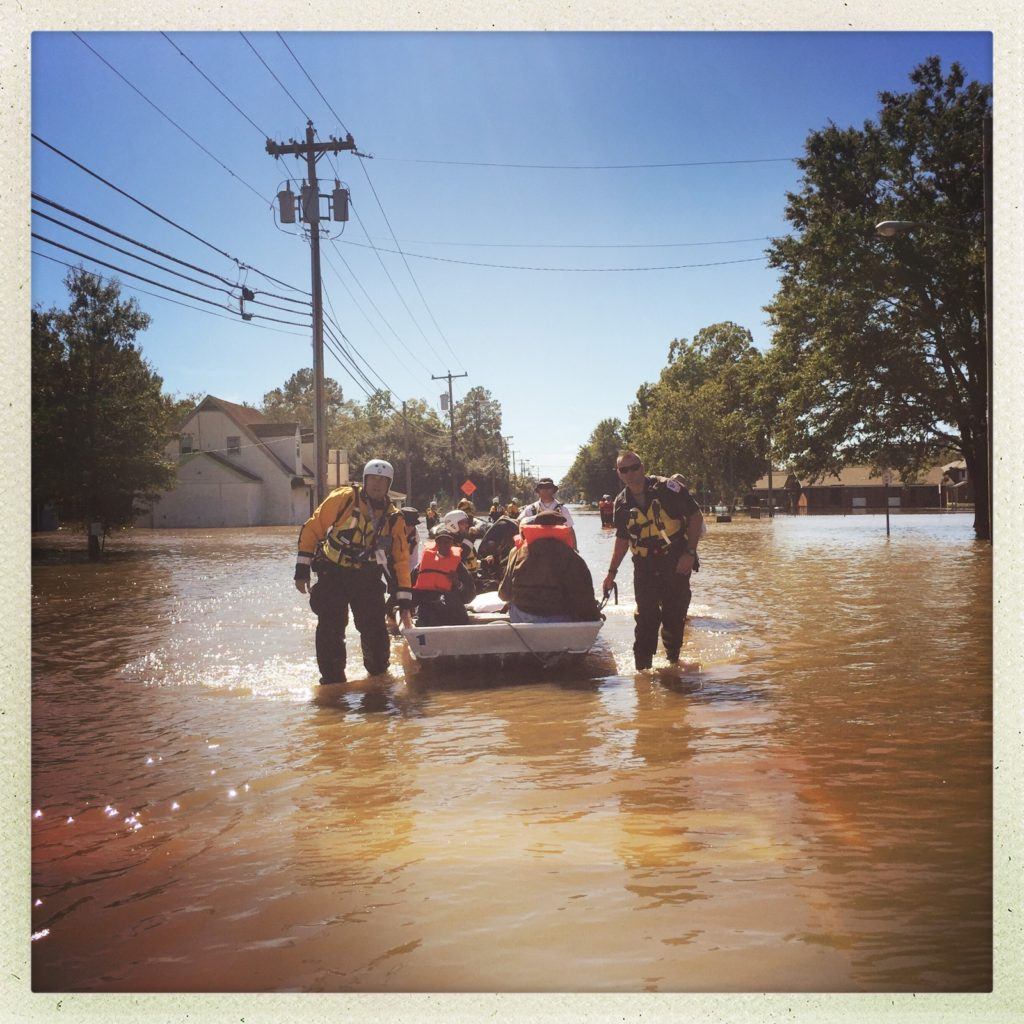It’s become a hurricane-season ritual in the Southeast: When a storm threatens, coastal residents board up homes, load up SUVs and fill highways where the traffic lanes are reversed to offer a speedy escape inland.
For some people, Hurricane Dorian is the fourth storm they have had to flee in four years.
When evacuations started in Florida, Georgia, South Carolina and North Carolina, forecasters still weren’t sure if the core of the powerful system would strike the U.S. It has been predicted it would stay offshore as it spun north, paralleling the Southeast coast.
Forecasters and state officials have been watching the storm closely and even just a few dozen miles of difference in the prediction could mean the storm would plow onshore somewhere along that route. So more than a million people were ordered to leave seaside communities, and more evacuations were issued Monday – all the way to North Carolina’s Outer Banks.
South Carolina Gov. Henry McMaster is aware of the complaints. He opened a news conference Monday acknowledging that his evacuation decision would not make everyone happy.
“The best thing in the world would be for that hurricane to take a sharp right and go out in the ocean. We would all celebrate,” McMaster said. “But we would rather be safe than sorry.”
Part of the evacuation fatigue is that recent storms have not had a catastrophic impact along the Atlantic Coast. There were dire possibilities of a Category 4 Hurricane Matthew striking Florida, but that storm made a turn similar to the one forecast for Dorian.
Matthew did cause billions of dollars of wind and flooding damage before coming ashore in South Carolina as a Category 1 storm.
Some of Flory Reddick’s neighbors in Ponte Vedra Beach, Florida, east of Jacksonville, got flooded during Matthew. An evacuation order has been made for Dorian too. But Reddick stayed then and plans to stay now.
“It’s a lot of trouble to get ready and then nothing happens. You know you’re glad. But you think, wow, I went to all this trouble for nothing, rolling up rugs, taking them upstairs, to only have your roof come off and get everything wet anyway,” Reddick said.
Atlantic Coast states have seamless plans in place thanks to lots of practice. In South Carolina, officials noticed traffic jams on Monday morning as evacuees and tourists heading home on Labor Day filled Interstate 26. In response, authorities reversed lanes about four hours earlier than planned so both sides of the highway were headed inland from Columbia to Charleston.
Twenty years ago, motorists sat on that same interstate for more than 20 hours in traffic jams caused by the evacuation for Hurricane Floyd.
“We certainly know how to do it because we have done it a number of times,” McMaster said.
Georgia pulled out its well-used plan to reverse the lanes of Interstate 16 out of Savannah starting Tuesday morning. In Florida, tolls were suspended on many freeways with few reports of gridlock or long lines.
In Hilton Head Island, South Carolina, the local emergency manager displayed a map during a televised news conference that showed the entire island under at least 2 feet (61 centimeters) of water if the forecasts are wrong and Dorian moves right over the island at the southern tip of the state.
Mayor John McCann was discouraged walking around the island and hearing people tell him they were tired of leaving and wanted to ride this one out.
Matthew brought hurricane force winds to the island, but it also took days for officials to let people back onto the island. Residents were angry because neighbors who stayed behind posted pictures and videos on social media of homes that were fine or had only minor damage. Then conditions got worse, and families had to wait to return.
Officials said they learned lessons from Matthew to get people back quicker and communicate better about when the island would be reopened. McCann on Monday asked anyone thinking about staying to realize it wasn’t only themselves they put in danger.
“Do the right thing not only for yourself but your neighbors around and the people who have to respond if things go bad,” the mayor said.
___
Collins reported from Columbia. Associated Press writers Meg Kinnard in Charleston and Gerald Herbert in Vero Beach, Florida, contributed to this report.
Was this article valuable?
Here are more articles you may enjoy.


 Dog-Related Injury Claim Payouts Hit $1.12B in 2023, Report Shows
Dog-Related Injury Claim Payouts Hit $1.12B in 2023, Report Shows  US Eyeing Ship’s Electrical System After Baltimore Bridge Crash
US Eyeing Ship’s Electrical System After Baltimore Bridge Crash  Harvard Study Again Stirs the Pot on Demotech Ratings of Florida Carriers
Harvard Study Again Stirs the Pot on Demotech Ratings of Florida Carriers  EVs Head for Junkyard as Mechanic Shortage Inflates Repair Costs
EVs Head for Junkyard as Mechanic Shortage Inflates Repair Costs 